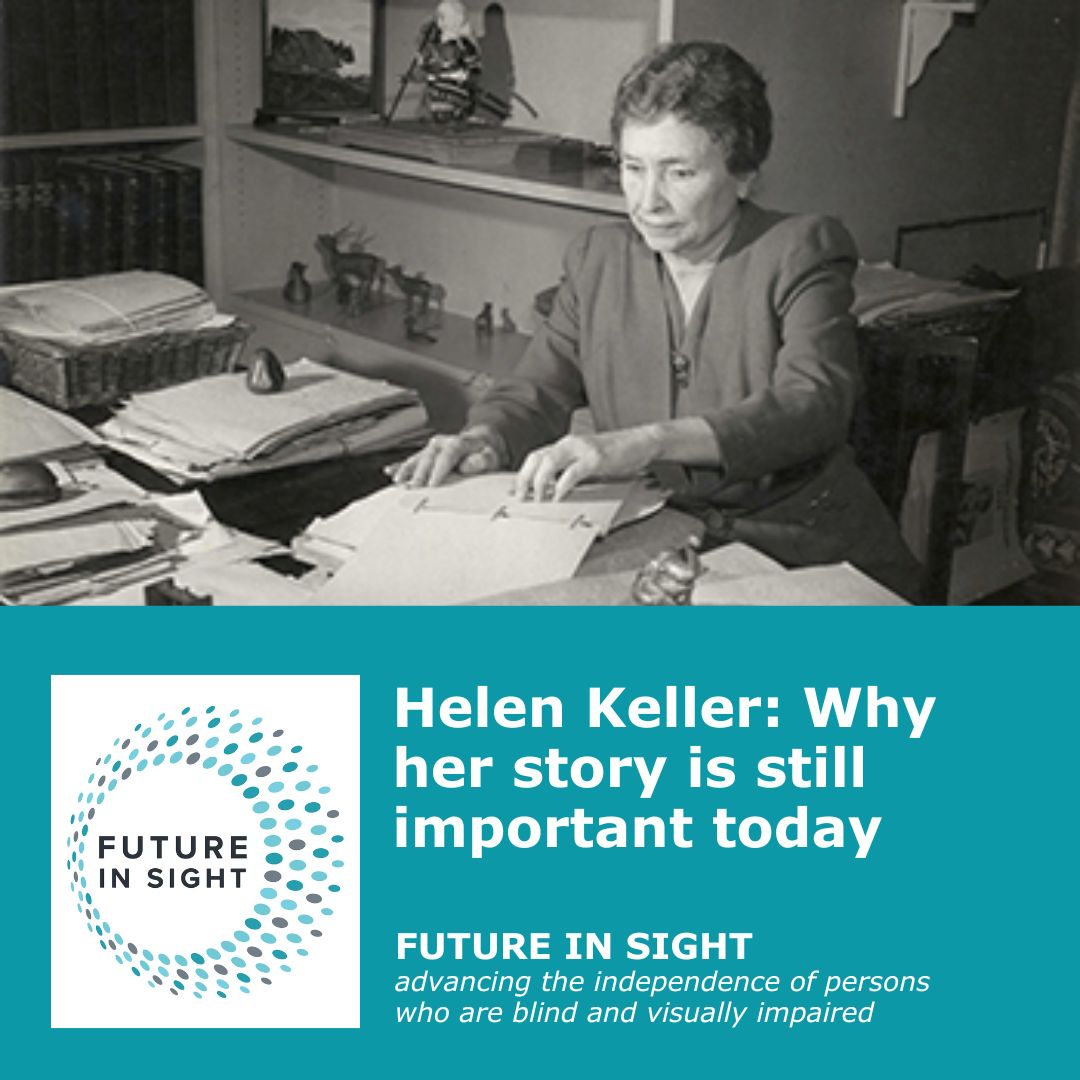
The services and support offered to the blind and visually impaired (BVI) community have changed dramatically since the late 1800s when Helen Keller was born. In recognition of her birthday, June 27th, we are sharing a brief overview of Helen Keller’s life, the services she received, and why her story is still important today.
Early Childhood
Helen Keller was born in a small Alabama town on June 27, 1880. For the first 19 months of her life, Helen was progressing like any of her peers. A diagnosis of Scarlet Fever in February of 1882 changed the course of Helen’s life forever.
In the blink of an eye, Helen was rendered both legally blind and deaf.
Over the next several years, Helen learned to communicate with her family using hand gestures and movement – her own form of sign language. Although this allowed her to connect with her parents, Helen began lashing out when communication failed with the outside world.
Perkins School for the Blind
Just when Helen and her family began to lose hope, a friend by the name of Alexander Graham Bell – the inventor of the telephone – suggested they contact the Perkins School for the Blind. Perkins was the first school developed specifically for the blind in the United States, opening in 1829 in Boston.
In 1887, the decision was made to send Perkins’ teacher, Annie Sullivan, to Alabama to work one-on-one with Helen. Annie immediately began teaching Helen sign language, but Helen’s frustration only grew as she struggled to grasp that the flurry of movement in her hand was spelling out objects and items Helen used daily.
All of the frustrations came to a head on the day Annie brought Helen to the water pump. As she spelled out the letters W-A-T-E-R, she allowed the water to run over their hands. It was this action that triggered understanding in Helen and unlocked a world of possibilities.
Just a year after Annie’s arrival in Alabama, her and Helen made the trip to Boston together so Helen could formally attend Perkins School for the Blind.
College
As Helen approached adulthood, she was faced with the reality that her voice would never be heard in the same way as others. Because of her dual diagnosis – blind and deaf – Helen struggled to communicate verbally. Her decision to go to college solidified her desire to continue learning and allowed her to find her voice differently.
At Radcliffe College, Helen wrote her first two books, The Story of My Life and Optimism, launching her career as a writer. After graduating with her Liberal Arts degree, Helen became interested in politics and began advocating for women’s rights, socialism, and the blind.
Why Helen Keller’s story matters
Helen Keller earned her place in history through determination and perseverance. She lived in a time before so many of the advances that are available to the blind and deaf community today. Her titles – humanitarian, author, educator – highlight her success, but they also highlight her ability to adapt. She is proof that individuals living with a disability can lead fulfilling lives, making significant contributions to their communities and society.
“I wish I might be taken just as a normal person, and my accomplishments treated simply as illustrations of how much more others can do if they only use their five senses with thought and perseverance.” – Helen Keller
If you or someone you love is experiencing vision loss and could benefit from our services, please contact Future In Sight at [email protected] or 603-224-4039 today!
About the Author: Future In Sight is New Hampshire’s only private nonprofit serving individuals at every age and every stage of vision loss

